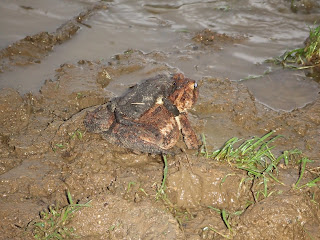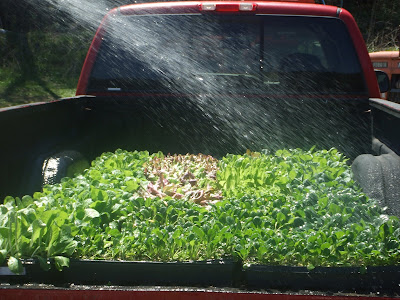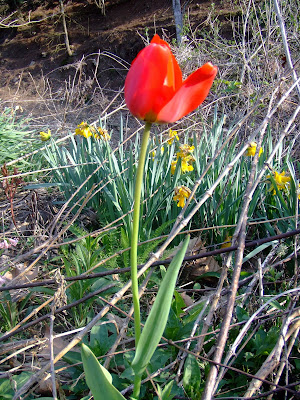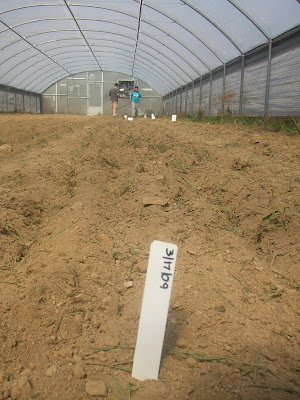You've been hearing it all over the place, probably every single day for the last several months: the economy sucks. Everyone says it. And it sure looks like it, with people losing their jobs left and right.
I know a little bit about this. I've been looking for work on and off for the past several months, and I can tell you that the available employment situation in central Wisconsin has worsened considerably--and it wasn't even that great to begin with. In the middle of '08 I would say there were plenty of jobs available, albeit not-so-desirable jobs, but still, plenty of jobs. Now, well, it's slim out there. Back then, a non-specific job search on the local daily newspaper classifieds yielded about 15-20 new job postings a day. Now you get that many new job postings every five days or so.
Still, in 08, wife and I combined made more money than we ever did as a couple. But we still struggled to make it at the end of the year. I don't exactly know why. For one, we probably spent more in general (that tends to happen when you make more money). For another, food and fuel costs were way up (though, we were less impacted by food prices because of our involvement with local agriculture). Regarding fuel: since we've lived in this apartment (it's been over four years now) we've managed to, on average, cut our electricity usage year to year. Electricity runs everything in our apartment (heat, stove, hot water, etc.). And yet, our electricity bills have continued to rise, this past December being the highest bill ever. Granted, it was cold, so heat was being generated at a high rate. But still, what kind of encouragement is that? People learn to use less, people cut back, but costs continue to rise. What's that? It's a dysfunctional economy.
That's right, the economy isn't bad, it's fundamentally dysfunctional.
I understand there are holes in my examples above. I do admit that we probably spent more in general. But ask my wife, she thinks I'm pretty extreme about avoiding purchases, so my idea of increased spending is probably a bit overstated. And I do admit that the winter has been cold. But if you look at the raw numbers provided on our little electric bill you can see that we've done a pretty damn good job of cutting our kWh usage in relation to heating/cooling degree days.
I think it has gotten to the point where if you live most of your existence in the mainstream American economy, you have few options to control your own livelihood--unless, of course, you desire money, pursue it, and are good at attaining it (the shortcomings of money coveting is a topic for a different post). For the rest of us who hold different values, our only opportunity for making a living, in my opinion, is to reject the dominant economic paradigm.
(What I'm about to say, I'm fully aware, is not anything new. It's all been said before. But now's the time for us to really consider viable alternatives to an economy that's been broken for so long. Perhaps this is the first time in several decades where a critical mass of people is willing to really question the way things are run and how it affects their daily lives. I'm just a messenger trying to straddle the divide.)
So, if I want to cut costs, take gentle steps on the Earth, and live a more satisfying life, I need to either change the deeply entrenched economic system (which many people much smarter than me have been trying to do for so many years now, to nearly no avail) or a bunch of us need to opt out and make our own economy (which is already happening successfully in small patches throughout the world). Whichever path one chooses to take to an alternative economy, it's gonna involve a rededication to good old human labor.
In the alternative economy I'm directly responsible for my heat, for example. If I'm using wood, the biggest "cost" is personal labor, which involves me and my neighbors actively managing a forest, cutting down some trees (or clearing dead timbers), hauling wood, and maintaining a heating system. But (here's a major key) it's not a cost in the traditional sense, with the proper mindset, because my labor is enjoyable. I get to be physically and mentally active (it keeps me healthy in more ways than one), in many cases I get to be outside (which I think is a built-in human desire), and the cash money I need to spend on such an activity is minimal. No doubt, physical labor and active, meaningful problem solving aren't always a "good time," but far worse is paying the utility provider, who you have absolutely no sway with. (And really, we pay money to go to college or work out at the gym, when a good majority of both meaningful education and physical wellness can be provided through truly productive personal labor.) If I'm providing my own utilities, on the other hand, I guide the entire process: I make the decisions that affect me--not some faceless, sprawling company who doesn't have a meaningful relationship with me or have my interests at heart.
Two things about this economy. Despite the way I describe it, it's not an "I" economy; it requires people consciously working together. Imagine that. It
requires community. In that sense, it is much more like the way we have lived for the majority of our time on this planet. The other thing: using wood for heat is only a convenient example; this economy is a modern and forward-looking one that can utilize (when it comes to the example of energy use) things like solar forced-hot-air, earth-rammed construction, passive solar, and, really, anything you can think of that is not energy intensive.
So, I have a real stimulus package for you: we should learn to do things and make the majority of our decisions on a small-scale local level. But let's not be ridiculous about this. You don't have to be some jack of all trades, some complete do-it-yourselfer. It's the 21st century, and we've learned a lot, invented a lot of useful things. Specialization makes sense, but only if we have a general understanding and awareness of the system that makes it possible for us to live a good life. We need to make the system accountable to what we value. Then the possibilities expand.
But we can't be afraid to do a little bit of hard work.


















































